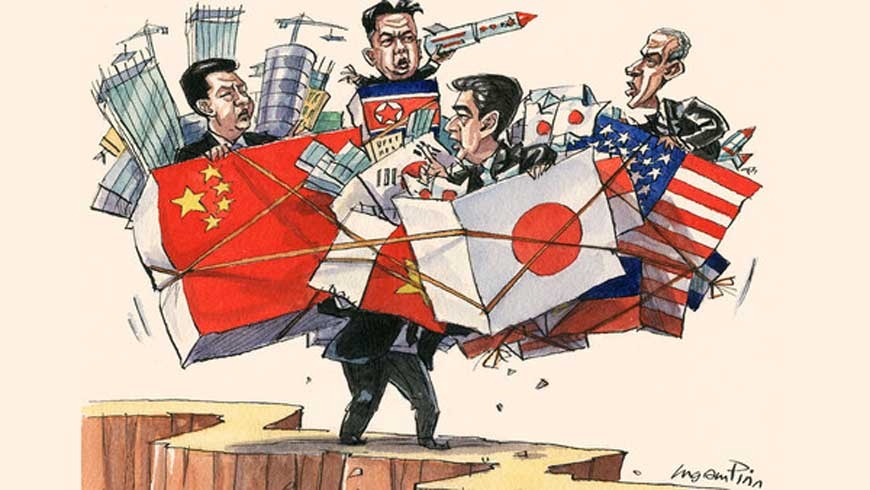The Sykes-Picot Agreement signed in 1916 between France, Britain, and Tsarist Russia carved up the Middle East, North Africa, and Central Asia into spheres of influence. The Western powers dominated the global agenda at that time. However, the Bolshevik Revolution of 1917 marked a turning point that planted the seeds of a new global bloc to challenge Western hegemony.
The emergence of this new bloc took decades. The Warsaw Pact was created in 1955, uniting the Soviet Union and its allies against the North Atlantic Treaty Organization (NATO), formed six years earlier. The ensuing rivalry between the two camps played out through economic competition, a political Cold War, proxy wars, and distinct ideological discourses that shaped global politics throughout the 20th century.
The collapse of the Warsaw Pact and the Soviet Union in the early 1990s marked the end of this era. NATO emerged victorious, and Western triumphalism dominated, leading to a series of colonial wars in Panama, Iraq, Serbia, Afghanistan, and beyond.
Throughout all of this, China was a rising power, not yet a global political force, but a worthy adversary and valuable ally. President Richard Nixon’s historic visit to Beijing in 1972 was a pivotal moment that prevented the East from uniting against Western imperialism. This trip marked the beginning of the end for the Soviet Union and gave the United States a strategic advantage over its rivals.
Today, the global power balance is shifting once again, with history being reversed in ways that few could have predicted. China has risen to become a major global power, rivaling the United States and challenging Western dominance. The Belt and Road Initiative, a massive infrastructure project spanning multiple continents, has strengthened China’s economic and geopolitical influence.
The COVID-19 pandemic has further accelerated this shift. China’s response to the crisis has been widely praised, while Western countries have struggled to contain the virus. As a result, China’s global standing has been elevated, and Western hegemony has been called into question.
As the world continues to change, it remains to be seen what the future holds. However, one thing is clear: the global power balance is in flux, and history is being rewritten once again.








